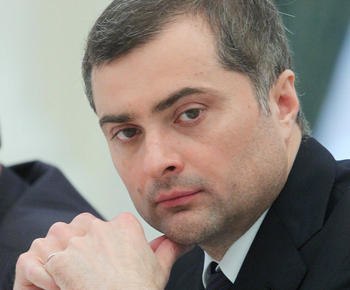(Eurasia Daily Monitor) Russia has captured much political attention in the West in the last few days because of its allegedly central role in the deadlocked civil war in Syria. Yet, in the domestic debates—boiling hot despite the holiday season—Syria is barely present, while the major point of contention is the sacking of Deputy Prime Minister Vladislav Surkov. No direct connection between these two foci of anxiety could possibly exist, but United States Congressman Tip O’Neill’s word of wisdom about all politics being local is perfectly applicable to Russia, in which foreign policy is largely driven by the surging intrigues in the Kremlin. Surkov used to be a grandmaster of these intrigues and the circumstances of his abrupt departure remain a mystery, which might, nevertheless, shed light on the limits of flexibility in Russia’s remarkably rigid course in the Syrian calamity.
It was US Secretary of State John Kerry who opened a new round of diplomatic talks around Syria while visiting Moscow last week and agreeing on staging an international conference, perhaps already in late May, where an interim Syrian government could be formed (Gazeta.ru, May 8). Kerry may not have expected that the first country expressing readiness to take part would be Iran, and he cannot seriously expect that Moscow would impress upon Damascus the desirability of removal of President Bashar al-Assad for the success of this conference (RIA Novosti, May 10). Russian Foreign Minister Sergei Lavrov then traveled to Warsaw for a meeting with his Polish and German counterparts and clarified that the planned delivery of Russian S-300 surface-to-air missiles to Syria would be in accordance with an old contract and could not constitute any violation of international law (Rossiiskaya Gazeta, May 11). Putin, meanwhile, had an unscheduled meeting with British Prime Minister David Cameron in Sochi and assured his guest that despite the still existing disagreements, Russia shared the goal of terminating the conflict and was ready to contribute to “positive scenarios” (Newsru.com, May 10). The fact of the matter is, however, that the protracted humanitarian disaster in Syria has strengthened Russia’s profile on the international arena and so has already constituted a “positive scenario,” as far as Moscow is concerned. […]
See the full article | © Eurasia Daily Monitor (Vol. 10, 90)











